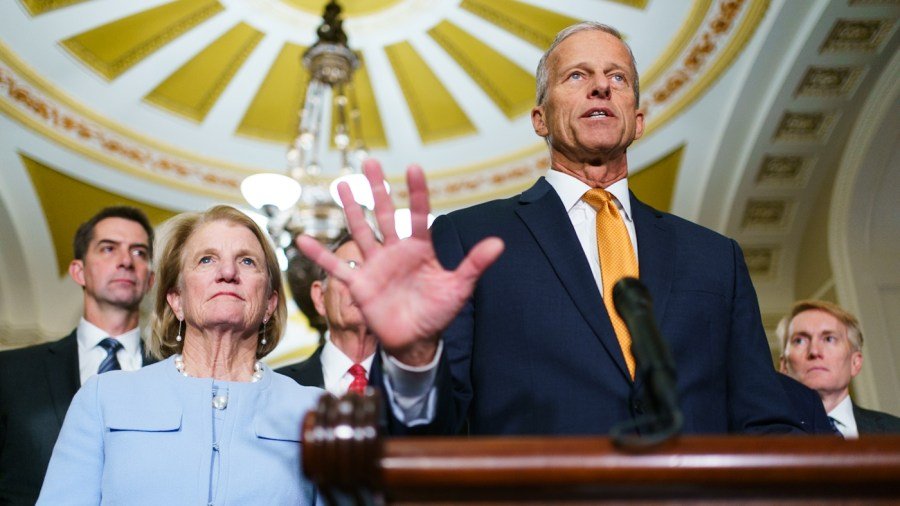
Senate Majority Leader John Thune’s (R-S.D.) support for keeping the 60-vote threshold for passing legislation through the Senate remains “unchanged,” according to a spokesman, despite President Trump’s demand that the GOP leader trigger the “nuclear option” and eliminate the filibuster.
“Leader Thune’s position on the importance of the legislative filibuster is unchanged,” a spokesman for Thune told NewsNation, The Hill’s sister station.
Thune last week dismissed the possibility of nuking the filibuster as a “bad idea” and several members of his leadership team have ruled it out as a pathway to circumventing Democratic opposition to a House-passed clean continuing resolution to reopen government.
Thune pledged to preserve the filibuster when he ran against Sens. John Cornyn (R-Texas) and Rick Scott (R-Fla.) in a three-way race to replace retiring Sen. Mitch McConnell (R-Ky.) as Senate Republican leader.
Since then, Thune has repeatedly said he supports keeping the filibuster rule intact, even though Democrats, who are in the minority, are using it to block Trump’s agenda.
Senate Republicans could overrule longstanding Senate precedent by voting by simple majority to assert that the filibuster no longer applies to government funding legislation, such as the continuing resolution to fund government through Nov. 21, which Senate Democrats have blocked 13 times on the floor.
Senate Republicans have said since the start of the shutdown on Oct. 1 that there would not be enough votes to carve out the filibuster to pass a government funding bill with a simple majority.
Members of Thune’s leadership team, including Senate Republican Policy Conference Vice Chair James Lankford (R-Okla.) and Sen. John Cornyn (R-Texas) have said they would not support getting rid of the filibuster to reopen the government.
More centrist Republicans such as Sens. Lisa Murkowski (R-Alaska), Susan Collins (R-Maine) and Thom Tillis (R-N.C.) have also voiced strong support for keeping the 60-vote threshold required to pass most legislation in the Senate.
Sen. John Curtis (R-Utah) was the latest Republican to push back hard on the call to “nuke” the filibuster.
“The filibuster forces us to find common ground in the Senate. Power changes hands, but principles shouldn’t. I’m a firm no on eliminating it,” Curtis wrote on X, the social media platform, above a repost of Trump to get rid of the filibuster to fund government.
Even Speaker Mike Johnson (R-La.), a close Trump ally, on Friday defended the Senate’s 60-vote threshold for passing legislation as an “important safeguard” to prevent the passage of sweeping liberal priorities and keep the size of government in check.
“The filibuster has traditionally been viewed as a very important safeguard. If the shoe was on the other foot, I don’t think our team would like it,” Johnson said.
He warned that Democrats, unchecked by the filibuster, could elevate the District of Columbia and Puerto Rico to statehood, ban firearms, and “do all sorts of things that would be very harmful for the country.”
Emily Brooks contributed reporting


